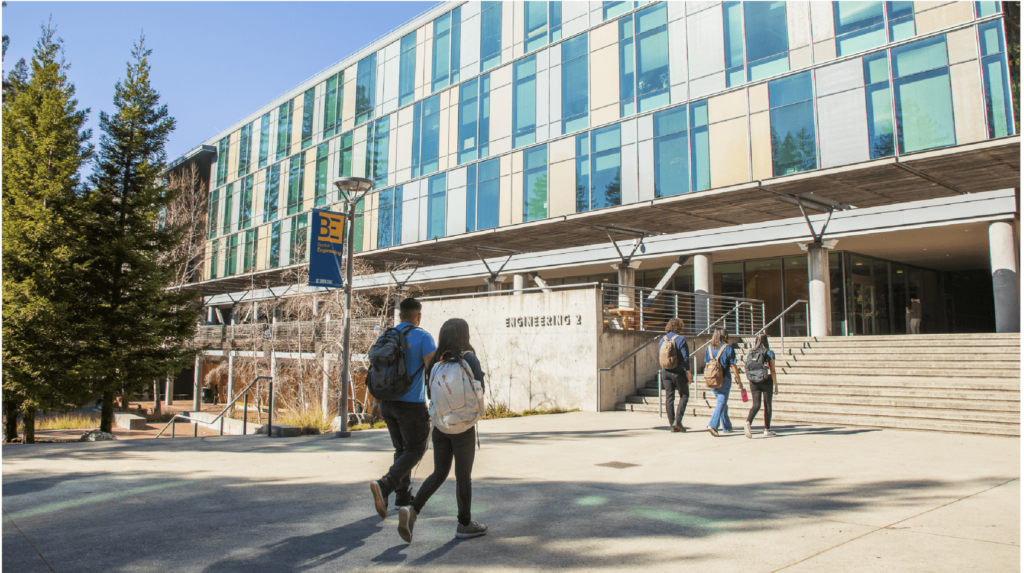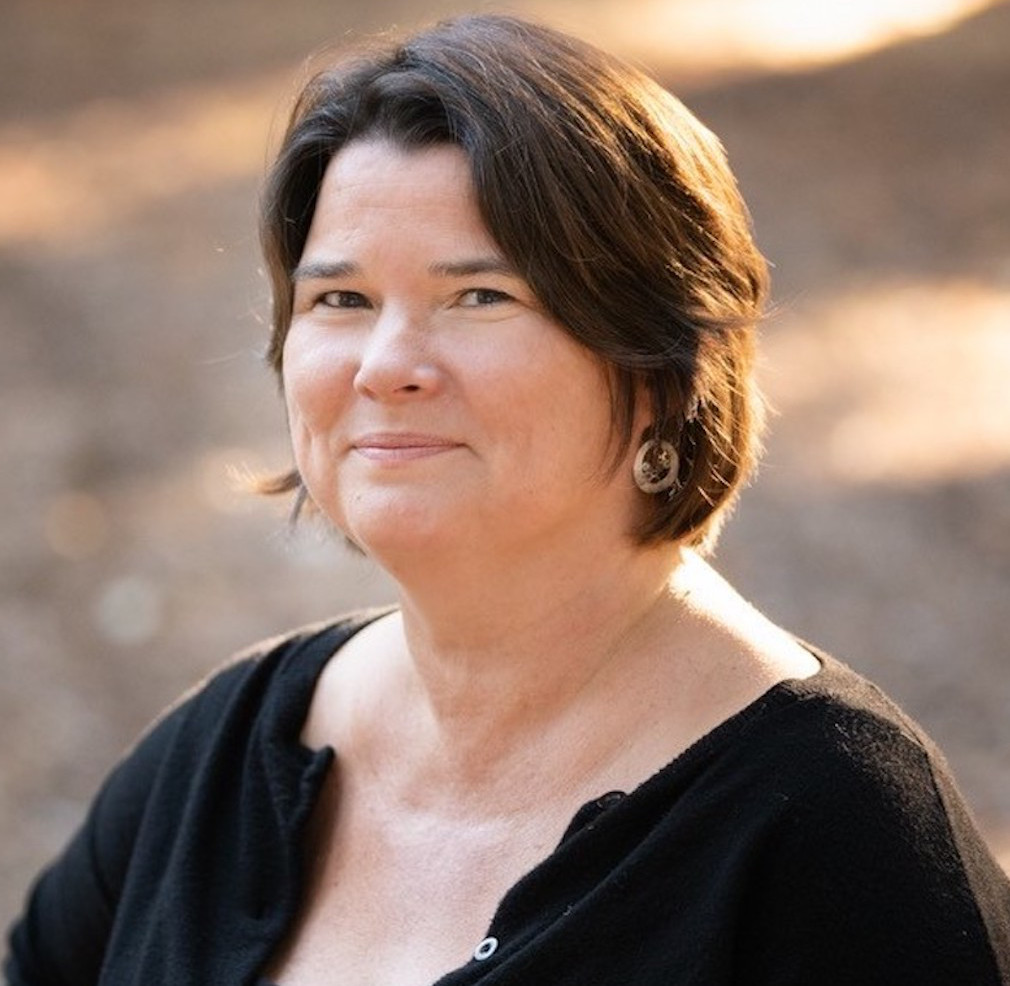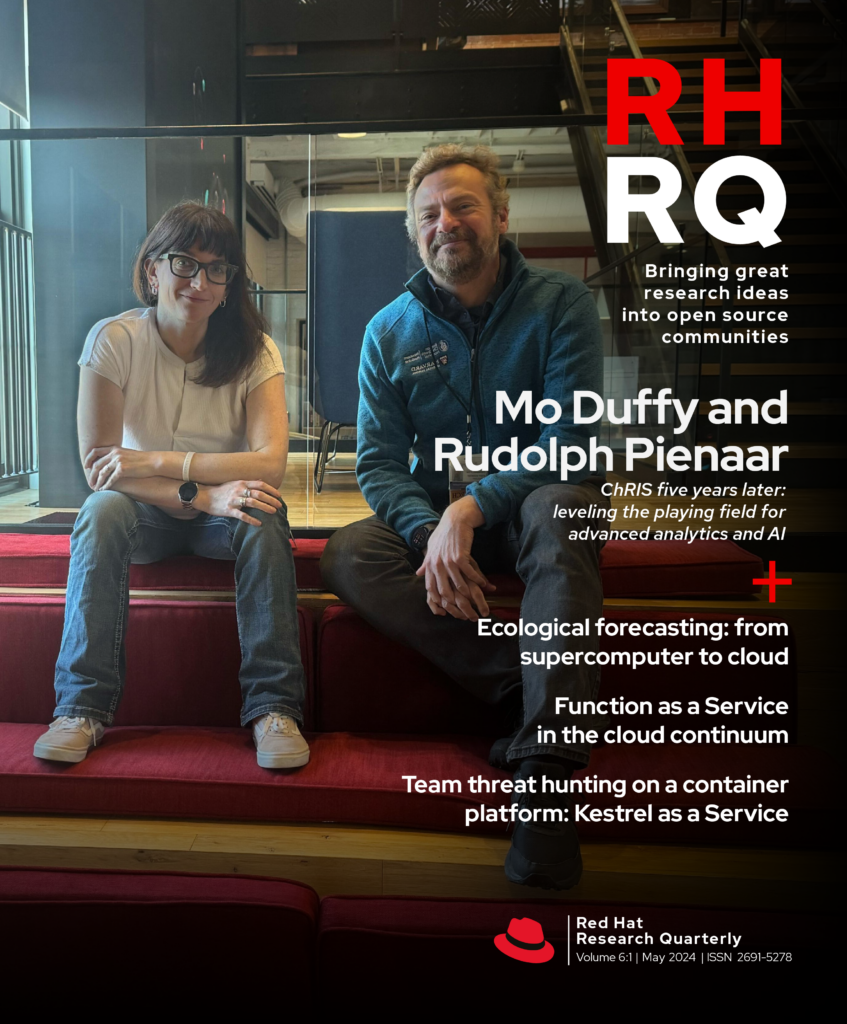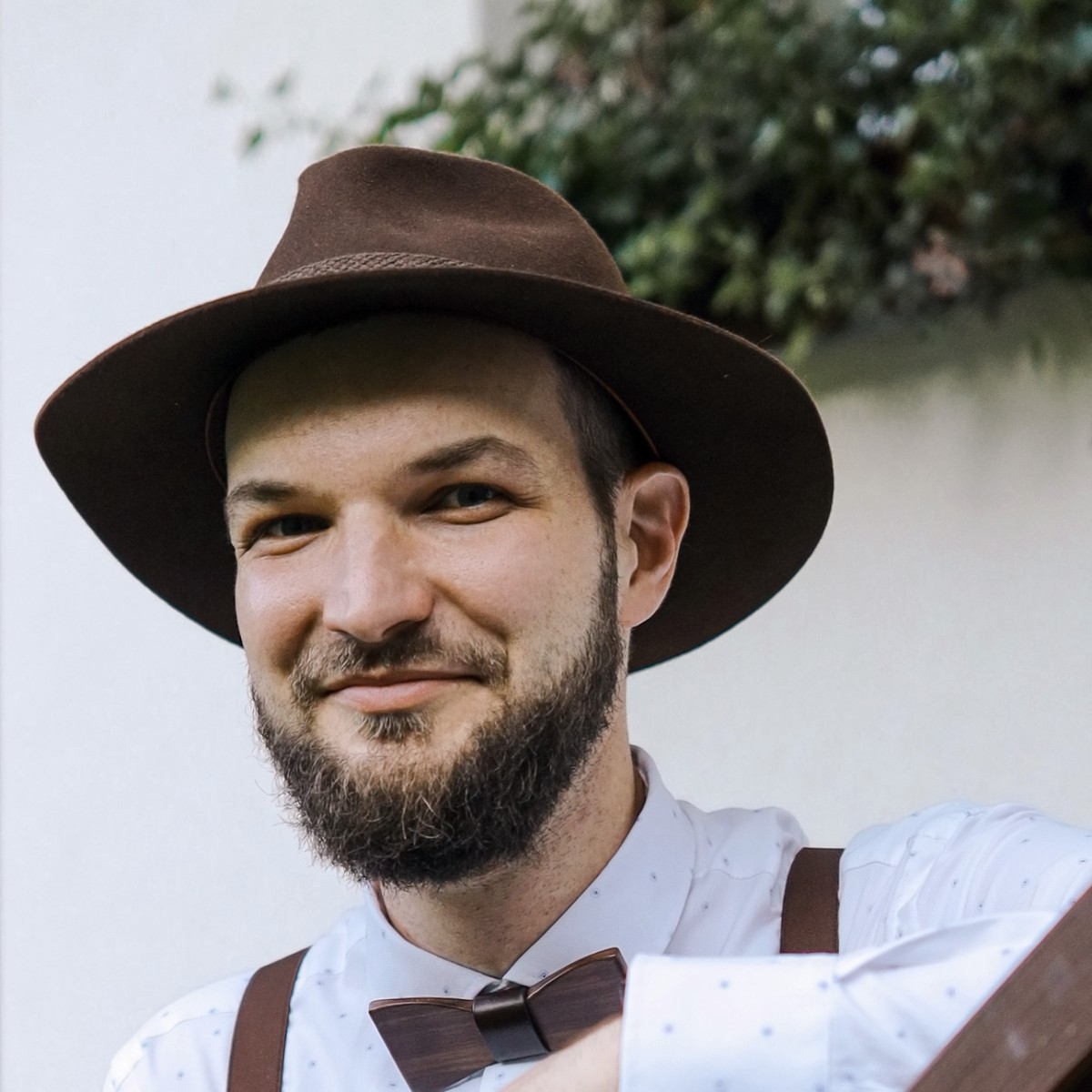Universities are looking at open source program offices to make the most of open source research on campus. UC Santa Cruz has an update on their progress.
In 2022, the University of California, Santa Cruz became one of the first universities to build an academic open source program office (OSPO) on their campus (see “Building a university OSPO: bolstering academic research through open source,” RHRQ Feb. 2022).
The OSPO’s goals are to create an infrastructure for open source ecosystems on campus, improve the talent pipelines through teaching and mentorship, and expand the reach and impact of research coming from the university. Two years on, this approach is taking root not just at UCSC but throughout the UC system, including a current effort to create a UC-wide network of OSPOs.
Growing influence of academic OSPOs
While academics are sometimes unfamiliar with the role of open source in research, leadership on a growing number of campuses is recognizing that promoting an open approach has a positive impact on their school’s research standing. Engaging in open source also enables them to tap into a more diverse set of funders. This recognition is evident in the activities of groups such as the Higher Education Leadership Initiative for Open Scholarship (HELIOS). HELIOS brings together more than 60 top-tier universities to coordinate efforts that align higher education practices with open scholarship values. Launched in 2022, this community of practice aims to elevate open practices and develop campus implementation of open research strategies. While HELIOS does not specifically call for the development of university OSPOs, the results of their work promote infrastructure and policies that run parallel to burgeoning OSPOs.1
The number of academic OSPOs is small but growing steadily. Support from the Sloan Foundation—which has funded 12 OSPO pilot projects to date2—and infrastructure-focused programs such as the National Science Foundation’s Pathways to Enable Open Source Ecosystems (POSE) has empowered academic OSPOs to help researchers and scientists build on the work of others, make academic research more replicable, and further universities’ education and public service missions.
In the process, these OSPOs are building on one another’s successes through platforms that allow for experience sharing, including the Sustain Academic Working Group, which facilitates open source focused collaborations in academic institutions; the metrics-focused CHAOSS (Community Health Analytics in Open Source Software) University Open Source Working Group; and the Community for University & Research Institute OSPOs (CURIOSS), which facilitates collaborations between OSPOs in universities and research institutions. While focusing significant efforts on building local campus infrastructure, the current cohort of academic OSPOs has also used these platforms to leverage the work of others and enable newcomers to benefit from lessons learned.
The UC Santa Cruz open approach

UCSC has long recognized the value of open source and open science. As part of the publicly funded Human Genome Project, UCSC researchers were the first to publish the human genome in 2000 as an open source artifact, beating a privately funded group intent on patenting the discovery. As a result, scientists worldwide can freely tap this knowledge and advance the understanding of human biology, evolution, and disease. The success of this project, and the resulting Human Genome Browser, illustrated the power of openness in increasing the impact of university research and bringing significant value to campus research.
Support for openness on the Santa Cruz campus drove the creation of the Center for Research in Open Source Software (CROSS) and the development of the UCSC OSPO. The origins of CROSS lay in the Ceph open source project created by UCSC PhD student Sage Weil. Weil continued to develop Ceph and, in 2014, sold his start-up to Red Hat, gifting $2 million of the proceeds to UCSC professor and Ceph co-creator Carlos Maltzahn. Maltzahn founded CROSS in 2015 and began partnering with industry to provide researchers the opportunity to build communities and ecosystems around their open source projects. By 2021, CROSS raised an additional $2.6 million through industry membership and supported the work of graduate students and postdoctoral scholars building new and innovative open source approaches through their research.
In 2020, CROSS became an early participant in groups like OSPO++, which promoted the need for OSPOs outside of industry, particularly in academia and the public sector. The CROSS team saw significant gaps in their ability to leverage open source in the university setting that an OSPO approach could fill, including insufficient training of students in open source, lack of coherence in technology transfer approaches, lost opportunities for university-industry partnerships around open source products, and an ongoing failure of replicability of academic research. While CROSS, as a research center in the Baskin School of Engineering, could bridge some of those gaps, a true campus-wide, multidisciplinary approach was needed to leverage the potential power of open source fully. Building an OSPO at UCSC provided a clear opportunity to expand activities that highlight the value of open source to the university research enterprise.
Empowering and diversifying the next generation of open source leaders
The UCSC OSPO undertakes efforts to promote open source research in parallel with training and mentorship programs that began under CROSS. In 2018, CROSS became a mentor organization for the Google Summer of Code (GSoC). Through this program, UCSC’s GSoC mentors—typically PhD students or postdocs developing open source efforts around their own research projects—were able to build community and gain maintainer experience. Out of this positive experience, the Open Source Research Experience (OSRE) program was established.
This program—which still leverages participation in programs like GSoC—now supports mentors throughout the UC system, allowing researchers to build a diverse community of contributors and provide hands-on experience to open source newcomers. With the support of the NSF, the OSRE also established the Summer of Reproducibility, following the GSoC model, to focus on research projects that produce and use reproducibility artifacts. In 2024, the OSRE—now formally under the UCSC OSPO—supported 37 students from 11 countries working with 40 mentors, completing summer projects that contributed to open source research efforts and practical reproducibility.
Strengthening and diversifying the open source workforce is a critical issue for open source communities generally, and academic OSPOs are uniquely situated to meet this ongoing challenge. In 2023, in collaboration with historically Black university Norfolk State University, the UCSC OSPO and Baskin Engineering Inclusive Excellence Hub launched the OSRE Contributor Catalyst program. This pilot was an eight-week hybrid program in which four NSU students learned to productively engage in open source.
OSPOs are uniquely situated to meet the challenge of strengthening and diversifying the open source workforce.
Participating NSU students spent about four weeks learning about open source, followed by four weeks remotely contributing to an open source project, with half of this time spent together on campus at UCSC and half spent collaborating remotely. The program provided a mix of mentorship, specialized instruction, and community building that supported participants in considering both industry and career pathways in the field. A unique feature of this program was its cohort structure, meaning that students lived, learned, and worked closely together for the duration, supporting one another throughout. Given the success of this pilot offering, the UCSC OSPO plans to grow the program to include multiple HBCU partners (and many more students) over the next few years.
Building the UC network—a work in progress
With the help of a recent grant from the Sloan Foundation, the UCSC OSPO has partnered with five other UC campuses—Berkeley, Davis, Los Angeles, San Diego, and Santa Barbara—to build a network of local OSPOs throughout the UC system. The project aims to create systemwide communities of practice that can leverage the experience of individual campuses, yielding a robust network of open source practitioners. This multicampus collaboration can also be a strong catalyst for increasing the understanding of the current open source landscape in the UC system.
While the UCSC OSPO has seen some success in highlighting the value of open source to the UCSC research communities, the current methodology for discovering the true scope of the on-campus open source landscape is insufficient and often misses potentially innovative research happening on campus. This lack of understanding limits the ability of UCSC, as well as other academic OSPOs, to effectively connect the university research enterprise with relevant open source communities and potential sponsors. In an initial exercise, UC San Diego researchers discovered at least 32,000 repositories on GitHub connected to their campus, and a similar scan of GitHub revealed at least 13,000 repos connected to UCSC, revealing that open source activity on campus was well beyond what had previously been identified.
As part of the effort to build a UC OSPO network, UCSC and the five other UC campuses are looking to develop tools that can provide an understanding of each campus landscape. This includes identifying existing innovative activities and seeing what is needed to improve their growth and strength. These ongoing efforts are aided by existing projects such as Emerging Technology Observatory’s Open Source Software Research and Community Activity (ORCA), the NumFOCUS Map of Open Source Science (MOSS), and the Apereo Foundation’s Open Source Software in Higher Education Report.3 The data gathered by the UC-developed discovery tool will help campuses target outreach activities that promote open source sustainability and best practices while also curating a portfolio of open source projects that would be open to engagement with external sponsors.
Ultimately the UC OSPO network project team hopes to include all 10 UC campuses as well as affiliated national labs in these collaborative activities. An important part of this network’s initial work will be to support local campuses building their own OSPO infrastructure. Even within the same system, there is no one-size-fits-all approach. While learning from the process undertaken by UCSC and other academic OSPOs, each campus will develop a unique structure that meets the needs of their individual campuses.
The successful creation of a UC OSPO network will likely hasten the proliferation of academic OSPOs. As part of one of the largest public research university systems, a University of California OSPO network has the potential not only to transform the UC system’s approach to open source but also to set a precedent for other large university systems establishing their own OSPO networks.
To hear more about the open source activities at UC Santa Cruz and how the UC OSPO Network develops, check out the UCSC OSPO website and follow the USCS OSPO on LinkedIn.
Footnotes
1. See Helios, Guide to supporting open scholarship for university presidents and provosts, Helios Open, www.heliosopen.org.
2. Apart from UCSC, the originally funded campuses include Carnegie Mellon University, Rochester Institute of Technology, John Hopkins University, St Louis University, and the University of Vermont. In 2023, six more universities were funded: Georgia Tech, George Washington University, Stanford University, Syracuse University, University of Texas in Austin, and the University of Wisconsin-Madison.
3. See Open Source Science (OSSci), The map of open source science (MOSS), OSSci; Patrick Masson, Open source in higher education… a community report, Apereo; and Zachary Arnold and Jennifer Melot (2023, July 11), Data visualization: ETO open-source software research and community activity (ORCA), Center for Security and Emerging Technology.













